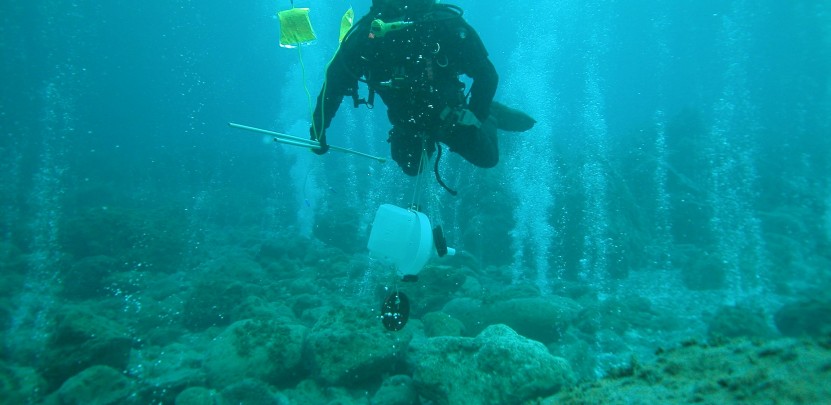 Talk
TalkTuesday 24 May 2016
6:00pm – 7:00pm
Ocean Acidification and Underwater Volcanoes in Japan
Drinks reception from 7:00pm
13/14 Cornwall Terrace, Outer Circle (entrance facing Regent's Park), London NW1 4QP
Organised by the Daiwa Anglo-Japanese Foundation
The oceans are acidifying at a rate that is unprecedented for at least the past 55 million years because they absorb around 25% of the carbon dioxide released by human activity. The coasts of Japan are already 30% more acidic than before the Industrial Revolution and look set to become 150% more acidic in our lifetimes. Scientists at the University of Tsukuba have found an underwater volcano that releases millions of litres of CO2 per day. This provides a hugely exciting opportunity for Japanese and European scientists to work closely together since techniques for studying the effects of underwater carbon dioxide gradients have recently been refined at similar volcanoes in the Mediterranean. Professor Jason Hall-Spencer has just begun a three year research project working with Shimoda Marine Station Director Professor Kazuo Inaba to explore the local marine life and carry out research at the CO2 seeps.
This project is expected to bring high-profile publicity to the oceanic side of rising CO2 levels. It is expected that whilst many seaweeds will do well, corals and many other organisms will not be able to tolerate the corrosive waters. This talk will explain what ocean acidification is, and why it is a major environmental and economic concern for fisheries and coastal ecosystems in the NW Pacific.
The Daiwa Anglo-Japanese Foundation awarded a Daiwa Foundation Small Grant to Professor Hall-Spencer to conduct a research visit to Shimoda Marine Station in June 2015.
NBC News talks to Professor Hall-Spencer on ocean acidification, April 2014:
Visit NBCNews.com for breaking news, world news, and news about the economy
About the contributors

Professor Jason Hall-Spencer
Professor Jason Hall-Spencer is Professor of Marine Biology at Plymouth University in the UK and Visiting Professor at University of Tsukuba. He is Editor-in-Chief of Regional Studies in Marine Science and he organises research expeditions to foster interdisciplinary research into the effects of rising CO2 levels. This work has attracted press and film documentary coverage worldwide. He conducts applied research to provide policy makers with the scientific evidence needed to best manage the marine environment, ranging from deep-sea benthos, fisheries, aquaculture, marine protected areas, biogenic reefs and seamounts. He has teamed-up with researchers at Shimoda Research Center to document what can survive in Japanese waters after long-term exposure to the levels of CO2 predicted in the coming decades.